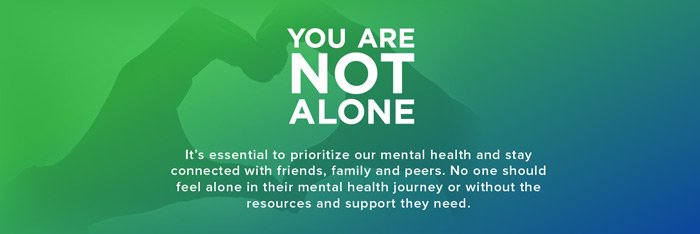Mental health is an important aspect of overall health and well-being. It affects how we think, feel, and act, and can impact our daily lives and relationships. Unfortunately, mental health issues are common and can affect anyone, regardless of age, race, or socioeconomic status.
There are many different types of mental health conditions, including anxiety disorders, depression, bipolar disorder, and schizophrenia, to name a few. Symptoms can range from mild to severe and can include changes in mood, difficulty thinking or concentrating, changes in sleep or appetite, low energy, and feelings of hopelessness or worthlessness.
It's important to recognize the signs of mental health issues and seek help if needed. This can be difficult, as there is often a stigma attached to seeking help for mental health issues. However, it's important to remember that seeking help is a sign of strength, not weakness.
There are many ways to address mental health issues, including therapy, medication, and lifestyle changes. It's important to work with a mental health professional to determine the best course of treatment for you.
In addition to seeking help, there are also steps you can take to improve your mental health on your own. These include:
Getting enough sleep
Eating a healthy diet
Exercising regularly
Engaging in activities that you enjoy
Connecting with others and building supportive relationships
Finding healthy ways to cope with stress
Practicing relaxation techniques, such as deep breathing or meditation
It's also important to remember that it's okay to not be okay. It's common to experience ups and downs in life, and it's important to give yourself permission to feel your emotions and take care of yourself.
If you or someone you know is struggling with mental health issues, don't hesitate to seek help. There are many resources available, including mental health professionals, support groups, and hotlines. Remember, you don't have to face mental health challenges alone.

Hi, TayTay!
This is a subject I've been grappling with for years. Pushing through it and "trying to get through my ADLs as painlessly as possible", but I think the system is broken.
Because of my SMI, I was convinced that I didn't know what was best for myself. I listened to my astranged birth mother and allowed her to talk me into moving from TX to GA when I realized I was completely disparaged and not getting any better handling the illness my way.
I agreed to let her help. She offered to pay for basic needs, shelter ( a room in her mansion) and she assured me that she would take care of all my household items that she paid to have moved from TX to GA.
Long story short, she is a very mean natured, selfish abusive lady, who is never happy no matter what. I would be so excited to tell her when I was having a good day, she began to see too much joy in my face and it quickly turned into hate. I bothered her constantly with my agoraphobia and other trauma related issues, mostly from being given up to a crap family who were also abusive and emotionless.
I've been homeless for 7 months. She kicked me out of her home in 28°F weather in the middle of January, packed up all my stuff and went through it, stole my phone and shared my personal info with people and is still holding my stuff hostage 7 months after a 100% illegal self-help eviction.
She convinced me to let her help me because I was bipolar, and for the same reason, she deemed it appropriate to punish me with malicious hatred and cruelty at every turn. She's even posted nudes of me on my google business profile.
It's been 7 months and I still have 5 outfits, no home, and I'm proud to say I'm still in college despite her constant harassment. Bipolar people do need help, but when we take it, we often end up worse off than we were in the first place.
T.C.W